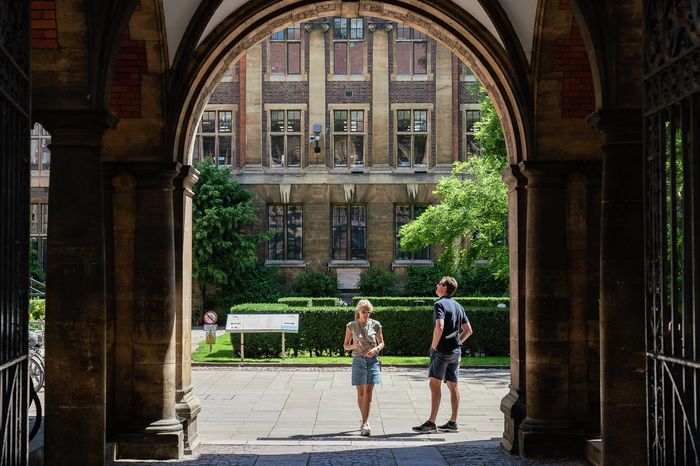Academics beef over Cambridge ham research
The authors of the paper labelled criticism as ‘incorrect’ and ‘illogical’

A group of Cambridge academics have hit back against criticism directed towards their research on the links between processed meat and diabetes.
The research, published last week, claimed to have identified a link between “consumption of 50 grams of processed meat a day - equivalent to 2 slices of ham” and type two diabetes.
These findings were questioned by Dr Duane Mellor from the British Dietetic Association, who claimed the research was “not able to account for the effect of family history, insulin resistance or waist circumference,” due to “missing data” and could not claim to have found a conclusive link between red meat and diabetes.
Type 2 diabetes is a a chronic condition that causes high blood sugar levels, due to the the body failing to produce enough insulin. It is typically associated with obesity and lack of exercise.
Speaking to Varsity, the authors of the paper Dr Chunxiao Li, Dr Nita Fourouhi, and Professor Nick Wareham have rejected this criticism, labelling it as “incorrect” and “illogical”.
The authors stated that that their research “accounted our analyses for potential confounding by both family history and waist circumference” and did “a lot more than much of previous research has been able to do”.
They also claimed that these “incorrect statements” had led to a “negative headline about an important paper which is extremely large and inclusive,” in BBC coverage of the issue.
The headline in the original BBC article claimed to “cast doubt” on the study, but was later updated to “Does eating meat raise the risk of diabetes?”.
The BBC article was also updated to include a quote from Prof Naveed Sattar, an expert in cardiometabolic medicine at the University of Glasgow, who described the paper as “an important study which, despite the inevitable observational nature of the evidence, is very well done”.
A spokesperson for the BBC told Varsity: “We routinely change headlines and provide additional context as more information is made available. We have added a note to the article to transparently explain what has been updated.”
 Music / The pipes are calling: the life of a Cambridge Organ Scholar25 April 2025
Music / The pipes are calling: the life of a Cambridge Organ Scholar25 April 2025 Arts / Plays and playing truant: Stephen Fry’s Cambridge25 April 2025
Arts / Plays and playing truant: Stephen Fry’s Cambridge25 April 2025 Comment / Cambridge builds up the housing crisis25 April 2025
Comment / Cambridge builds up the housing crisis25 April 2025 Interviews / Dr Ally Louks on going viral for all the wrong reasons25 April 2025
Interviews / Dr Ally Louks on going viral for all the wrong reasons25 April 2025 News / Candidates clash over Chancellorship25 April 2025
News / Candidates clash over Chancellorship25 April 2025






